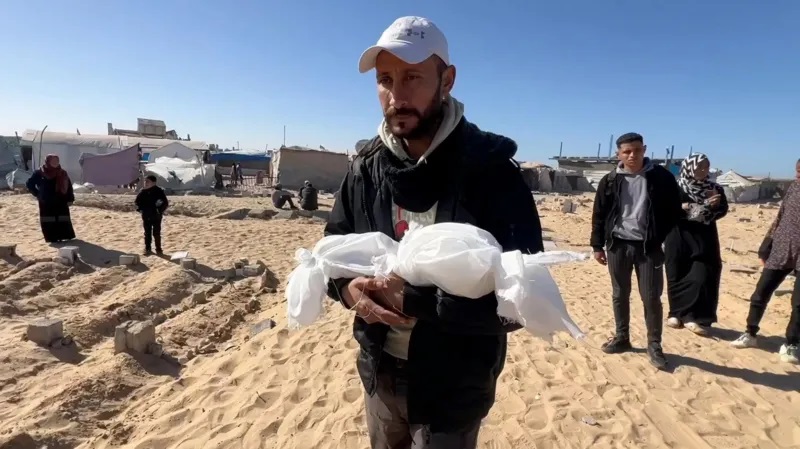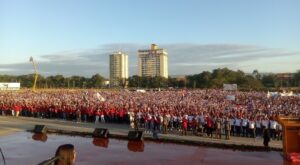
Published 01/13/2025 22:00
In the middle of winter, Gaza faces a silent tragedy that affects its most vulnerable residents: babies and young children. In recent months, the intense cold, combined with the lack of adequate shelter and the scarcity of basic resources, has caused the death of dozens of newborns in the region, exposing the devastating dimension of the siege imposed by Israel and the war that has lasted 15 months. .
On December 25, 2024, three babies less than a month old were taken dead to Nasser Hospital in Khan Younis. Victims of low temperatures, which reach 7ºC, these babies lived in makeshift tents in the Al Mawasi displacement camp, in the south of the Gaza Strip. The region, which is home to thousands of Palestinians displaced by bombings, is marked by unsanitary conditions and shelters unable to protect families against the biting cold of winter.
According to information from Nasser Hospital, between October and December 2024 alone, 325 newborns were admitted to the Neonatal Intensive Care Unit (NICU) due to complications aggravated by the cold. Doctors Without Borders (MSF) warned that children in Gaza are exposed to extreme risks, such as respiratory infections and hypothermia, especially in makeshift tents that are unable to protect against low temperatures.
“The exceptional conditions we have been experiencing over the past 14 months, as well as the drop in temperatures now, are further deteriorating living conditions in worn-out tents and making these children more prone to hypothermia,” explains Mohammad Abu Tayyem, MSF pediatrician. at Nasser Hospital. “The exceptional conditions we have been experiencing over the last 14 months, as well as the drop in temperatures now, are further deteriorating living conditions in worn-out tents and making these children more prone to hypothermia,” he explains. Mohammad Abu Tayyem, MSF pediatrician at Nasser Hospital.
“Even before their lives begin outside the womb, babies are already at risk of illness and death,” says Pascale Coissard, MSF emergency coordinator.
The difficulties faced by Palestinian families are worsened by the restrictions imposed by Israel on the entry of humanitarian aid into the region. According to the United Nations Office for the Coordination of Humanitarian Affairs (OCHA), just 24 trucks with shelter materials entered Gaza between December 1 and 26, a drastically insufficient number to meet the urgent needs of nearly 2 million displaced people. .
The United Nations Children’s Fund (UNICEF) also highlighted concern about the inhumane conditions faced by children in Gaza. Agency reports indicate that many families do not have access to basic items, such as blankets and heating fuel. The situation is made worse by the forecast of even lower temperatures in the coming weeks.
Poor living conditions were also highlighted by recent floods, which destroyed more than 1,500 tents in the region, leaving thousands homeless. Barefoot children without adequate clothing face streets full of open sewage, increasing the risk of serious illnesses.
International organizations and humanitarian entities have reiterated calls for an immediate ceasefire and the opening of safe humanitarian corridors. MSF highlighted that insufficient supplies and blockages to the entry of aid make the situation unsustainable. A permanent ceasefire is seen as the only viable solution to alleviate the suffering of the Palestinian people and guarantee unrestricted access to essential humanitarian aid.
With the arrival of winter, the world witnesses yet another dimension of the Palestinian genocide, as entire families struggle not only against the cold, but against international negligence and continued Israeli aggression. The urgency of a political solution to the Israel-Palestine conflict is not just a human rights issue, but an attempt to save lives that are today being claimed by cold, hunger and violence.
Source: vermelho.org.br

